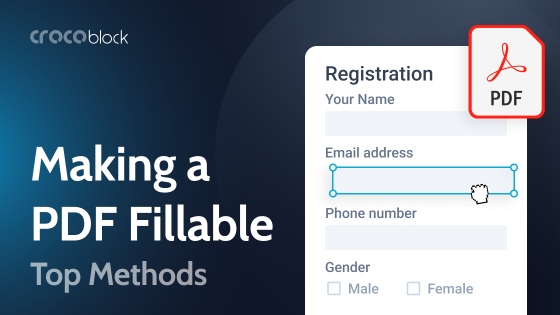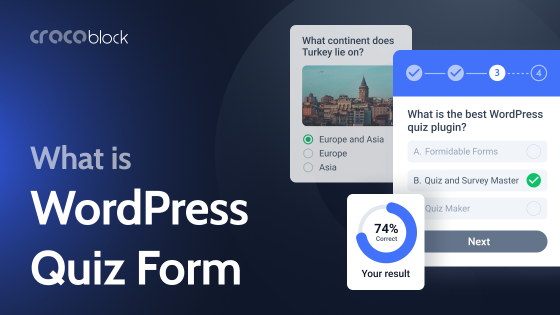If you often use the internet, you will likely be familiar with HTTP, HTTPS, and WWW. However, you may not know what each one means or their differences. Knowing this information can help you understand how to create an effective domain for your WordPress or eCommerce domain.
Read on to learn the definitions of HTTP, HTTPS, and WWW, and discover the differences between them.
Table of Contents
- HTTP vs. HTTPS: Understanding The Basics
- HTTP vs. WWW: Which One is the Better Option?
- Which One is Best for SEO: HTTP, HTTPS, or WWW?
- Frequently Asked Questions
- Why Are HTTP, HTTPS, and WWW All Important?
HTTP vs. HTTPS: Understanding The Basics
Before looking at the primary difference between HTTP and HTTPS, we need to explain them in more detail.
What is HTTP, and what are its primary uses?
HTTP stands for hypertext transfer protocol: an application-layer protocol (specifies shared communications and a host’s interface methods) with two main uses.
- HTTP can be a communicative bridge between web servers and web browsers; it enables you to find a specific website quicker and easier on the world wide web.
- HTTP is for transmitting various documents, specifically hypermedia documents (HTML).
What is HTTPS, and what are its primary uses?
HTTPS stands for hypertext transfer protocol secure; it has a similar concept to HTTP but focuses more on securing communications between a web browser and server (rather than performance benefits). For example, it can secure a data transfer on a website containing sensitive information.
It is excellent for stopping cyber attacks and data theft.
What is the main difference between HTTP and HTTPS?
HTTP and HTTPS’s primary difference is that HTTPS is far more secure (they have certificates like SSL, TLS, etc.).
Specifically, HTTPS URLs have SSL certificates (issued by a certificate authority). Having an SSL certificate ensures a safe connection on the URL. It is relatively easy to spot an SSL certificate on an HTTPS URL because there will be a symbol, such as a padlock.
HTTP does not have security measures like this, so it is not a recommendable option for any website that contains secure data (like a banking website with credit card information). However, it is safe to browse a regular website.
HTTP vs. WWW: Which One is the Better Option?
It isn’t necessary to choose between HTTP and WWW for a URL because they link together; using WWW in a URL communicates that the website is using HTTP (not HTTPS).
Because they link closely, we could theoretically use either for a web address (https://inserturl.com or www.inserturl.com). Using either one of these will work when searching for a specific website.
Do you need WWW in URLs?
Although it is one of a URL’s most common elements, WWW is unnecessary. The only reason WWW is in a URL is to identify the web address correctly (however, HTTP can also achieve this).
NOTE:
WWW has a minimal purpose; we would not need to use it to create a functioning custom domain.
Knowing this information poses a fascinating question: why is WWW so common when it isn’t necessary? WWW was there at the inception of the internet; it holds meaning and is instantly recognizable. Therefore, although it’s staying power is primarily accidental, it is impossible to think of a domain name without considering WWW.
Which One is Best for SEO: HTTP, HTTPS, or WWW?
Search Engine Optimisation (SEO) is an essential responsibility when creating and running a website; if I made a website and put no time into search engine optimization, it wouldn’t be a successful website.
One key element to consider for SEO is the URL. Specifically, does it matter if I use WWW or not?
The simple answer is no.
NOTE:
I could use WWW, HTTP, or another URL; it won’t affect SEO.
However, utilizing multiple URLs for the same domain (by constantly switching them) will have a negative effect on SEO because it will split the domain between two different rankings.
When switching from HTTP to HTTPS, inform Google, so the change doesn’t affect the rankings.
Frequently Asked Questions
HTTP is not more secure than HTTPS because it does not possess security certificates like SSL. Because HTTP does not have these security measures, it is not a recommendable option for any website that contains secure data (like a banking website with credit card information). However, it is safe to browse a regular website.
The best time to use HTTP is for browsing a regular website; doing this is safe as most websites will not contain personal or sensitive information. However, HTTP domains are unsuitable for any website that needs high-level security measures, such as a banking website. HTTP requests and responses (processed through an origin server) are also helpful because they can acquire information or resources from a server.
The easiest way to determine if a website uses HTTP or HTTPS is to check the web address; the URL will be at the beginning of the web address (for example, https://webaddressexample.com). If there is a domain with WWW, that means that it is an HTTP domain.
Although it is one of a URL’s most common elements, using WWW is unnecessary. The only reason WWW is in a URL is to identify the web address correctly (however, HTTP can also achieve this). Other than this, WWW has very little purpose; it is possible to create a functioning custom domain.
Why Are HTTP, HTTPS, and WWW All Important?
Although some are more essential than others (WWW is entirely unnecessary), HTTP and HTTPS are important because they clearly indicate a domain name.
Additionally, HTTPS holds extra importance because it can offer more security than HTTP, which is beneficial for any website that contains sensitive data transfers.
Although WWW isn’t necessary, using it in place of HTTP is still okay because it won’t affect the SEO rankings.



